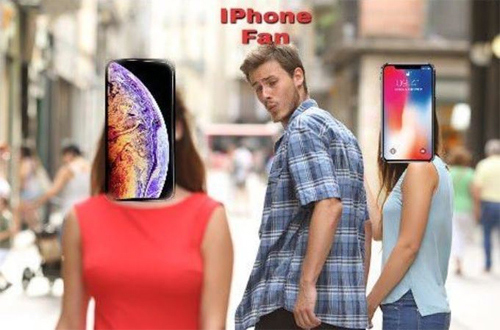Will the Internet change forever after European Copyright Law?
On 12 September 2018, the European Parliament adopted a new law called Copyright Directive. Accordingly, in Europe online service companies will have to prevent users from posting pirated content online and have to share revenue with news, video and music producers.
The final vote will be held in January 2019 before the new Copyright Law is officially adopted.
Internet is no longer 'open'
Article 13 of the new Copyright Law requires some companies to block users from using copyrighted works without permission. Accordingly, Facebook, YouTube and large Internet companies will have to prevent users from posting and sharing copyrighted information using content recognition technology or filters.
Opponents of the new Copyright Law argue that such automatic filters will affect the freedom to share information. They even think it will make the Internet change forever.

Institutional, fake videos all take copyrighted images and then rebuild them to convey new messages.
Experts including World Wide Web "father" Tim Berners-Lee, Internet "father" Vint Cerf and Wikipedia founder Jimmy Wales said that Article 13 could make Intenret no longer an open platform, sharing and creativity that will become an automated user control tool.
On the contrary, lawmaker Axel Voss argues that protesters are making things more serious. By the fact now YouTube or Google itself has integrated Content ID system. YouTube's anti-copyright tool scans videos uploaded by users, if they see images, sounds . that match those copyrighted content in the database, sends a warning to the poster and removes the video.

Revenue sharing
Article 11 of the Copyright Act is also opposed by technology firms. Article 11 requires Internet companies to use the works of artists and newspapers . to pay them or services like Google News want to display content that must share revenue for publishers.
In 2017, the 9 largest press agencies in Europe have called on the European Union to ratify the law forcing Facebook, Google and Internet service providers to pay for news content. Because 60-70% of these companies' sales are advertisements, most of them are due to the efforts of others.
And when users start switching from computers to mobile devices to keep track of the news, this battle is even more 'hot'.
After the new Copyright Law was voted on, Google gave its opinion: ' We think the best way to build a sustainable future for European press and innovators is to innovate and match. more work. '
Facebook has yet to make any comments, while the Media and Computer Industry Association, including members such as Amazon, eBay, Pandora ., is also conducting a campaign against the law.
See more:
- How to register a video copyright on YouTube
- Facebook was sued collectively because of biometric data collection, which could cost billions of dollars
- This is what Google and Facebook know about you, be prepared to not be shocked